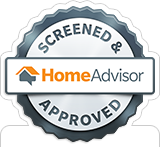FAQ
What is mold?
Mold is actually forms of fungi that are found naturally in the environment. Outdoors, molds play a key role in the breakdown of wood, leaves, plants and other organic materials. Molds come in many colors, shapes and sizes. Molds can appear fuzzy or in circular patterns. There is often a musty or “old” smell associated with molds. Molds make tiny spores during reproduction just as some plants produce seeds. Indoors, these mold spores move through the air and settle on surfaces. When mold spores land on a damp spot, they may begin to grow and multiply.
How do I know when I have a mold “problem”?
Typically our advice is to use common sense to determine if you have a mold “problem” or a “situation”. A situation can usually be dealt with by a home or business owner. A “problem” is when you discover mold that you cannot handle or choose not to handle because of risks to your health. The EPA states that any mold contamination in an area less than 10 square feet can be dealt with by the home or business owner. This can include a small amount of mold on sheetrock in the basement, behind a refrigerator or on a ceiling tile. If the area is larger than 10 square feet then it is important to call a certified mold testing company to confirm and recommend treatment of the contamination.
Why all of a sudden do I have mold in my home?
For significant mold growth to occur, there must be a source of water (which in some cases could be invisible), a food source, and a substrate capable of sustaining the mold growth. Plywood, drywall, carpets and carpet padding are common building materials that serve as good food for mold growths. Carpet contains cellulose and dust which good food sources for mold. Even after a single incident of water damage in a building, mold may grow inside walls and be dormant or inactive until a climate change and high humidity levels occur. Mold can then become a sudden problem long after the initial water incident. The right conditions reactivate mold—studies show that buildings that have had a water incident show higher levels of mycotoxin.
Can I take care of my mold problem with bleach?
There are many problems with using bleach as a chemical in do-it-yourself mold removal projects. The main issue being that while bleach will kill mold on hard and non-porous surfaces such as tile, granite, marble, cement and glass, it should not be used on porous surfaces such as sheetrock, wood, carpeting and textiles. Bleach is a compound composed primarily of chlorine and water. The chlorine has the ability to kill mold located on the surface, but the remainder of the compound (water) will travel into the material and actually make future mold growth much easier.
What are the associated costs of testing for mold?
There is no flat fee for mold testing. Each situation is different depending upon the factors. If the contamination is isolated to one area of the home and one indoor air test is sufficient then the MoldRemovalPhiladelphia.net fee would be $350 (includes 1 indoor sample, 1 outdoor sample to establish a baseline and a full report).
What are the typical associated costs of a mold remediation?
There is no one answer to this question because there is no “typical” mold remediation. Every case is different. We need to consider factors such as the scope of the contamination, size of the areas in question, need for demolition, accessibility of the space etc… MoldRemovalPhiladelphia.net provides accurate fee schedules in a timely manner.
Can you get sick from being exposed to mold in your home or business?
Some people are sensitive to molds and mold exposure can cause symptoms such as eye irritation, difficulty breathing, skin irritation, and sinusitis. Other people have serious mold allergies and may have more severe reactions. These reactions may occur among people who are exposed to large amounts of mold in workplace settings, for instance farmers working around mold hay. Severe mold reactions include shortness of breath and flu-like symptoms. Some people with chronic lung conditions (obstructive lung disease) may develop mold infections in their lungs. Generally it is the very young and the very old who have the highest risk of being affected from exposure to mold.
Can I remove all of the mold from my home or business?
No. Mold is part of the normal environment both indoors and out. It is impossible to keep a certain amount of mold from entering the indoor environment. It is important however to realize when the levels of indoor fungal populations have exceeded that of the outdoor levels. This is when it becomes a problem and can then lead to a host of structural and health issues.
How can I prevent mold from growing in the first place?
Keep home and office humidity levels below 55%.
Use a dehumidifier or air conditioner during hot summer months.
Be sure your home or office has adequate ventilation, including exhaust vents and fans where appropriate.
Add mold retardants to paints before applying.
Regularly clean bathrooms with mold killing products.
Do not carpet bathrooms and basements or spaces with high humidity.
Remove or completely dry out previously wet carpets and upholstery.
Can you get sick from being exposed to mold in your home or business
Some people are sensitive to molds and mold exposure can cause symptoms such as eye irritation, difficulty breathing, skin irritation, and sinusitis. Other people have serious mold allergies and may have more severe reactions. These reactions may occur among people who are exposed to large amounts of mold in workplace settings, for instance farmers working around mold hay.
Severe mold reactions include shortness of breath and flu-like symptoms. Some people with chronic lung conditions (obstructive lung disease) may develop mold infections in their lungs.
Generally it is the very young and the very old who have the highest risk of being affected from exposure to mold.
SERVING BUCKS, CHESTER, DELAWARE AND MONTGOMERY COUNTIES
COMMERCIAL & RESIDENTIAL MOLD TESTING AND MOLD REMOVAL IN PA & NJ









